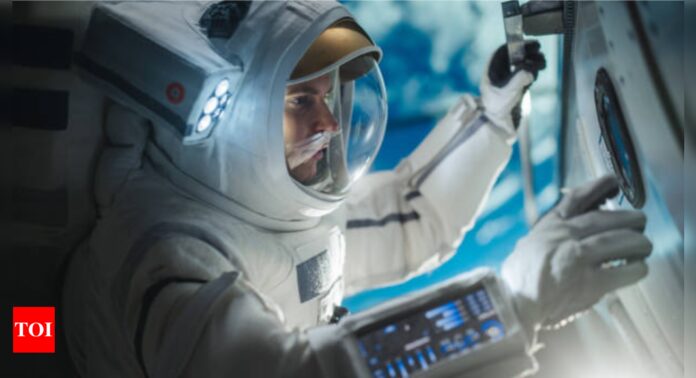Calories measure the energy your body needs to function. On Earth, calorie requirements depend on factors like age, gender, physical activity, and metabolic rate. In space, these factors are compounded by the unique environment, leading to increased energy expenditure.
Ever since Sunita Williams and Butch Wilmore’s week long space expedition has been stretched to months, people have been worried about the health of the astronauts. Living in microgravity has its own set of challenges, which astronauts tackle every single moment of their stay. For example, loss of bone density, requirement of more calories are among the few changes astronauts undergo during their stay in space.
On Earth, physical activity and gravity determine much of our caloric requirements. In contrast, space conditions require the body to work harder even at rest. The disparity is clear when considering an astronaut’s intense workout routine and physiological adaptations.
Space exploration is a remarkable endeavor, but it comes with unique physiological challenges. One of the lesser-known facts about life in space is the increased calorie requirements for astronauts. While the average adult on Earth needs about 2,000–2,500 calories daily, astronauts generally require 2,500 to 3,800 calories daily depending on their workload.
Microgravity affects the calorie intake of astronauts in the space
Astronauts float instead of walking in microgravity, and space life might seem effortless because of this. However, their bodies work harder to maintain basic functions. The effects of microgravity disrupt muscle function, bone density, and cardiovascular systems; hence, the body has to use more energy to adapt. The continuous usage of stabilizing muscles for small movements increases caloric needs.
Microgravity causes muscles to weaken and bones to lose density due to reduced mechanical loading. To counteract these effects, astronauts engage in intense resistance and aerobic exercises for about 2 hours daily. This physical activity significantly raises their caloric requirements compared to Earth.
Spacecraft environments are controlled, but temperature fluctuations can occur. In microgravity, the body’s thermoregulation system works harder to maintain a stable temperature. This increased metabolic activity adds to the caloric demand.
Astronauts experience metabolic changes in space. Studies show that their basal metabolic rate (BMR)—the energy required to sustain vital body functions—tends to increase. This may be due to changes in the way the body processes nutrients, as well as stress on organs like the liver and kidneys.
In space, fluids shift toward the upper body, affecting the gastrointestinal system. Although astronauts might eat less due to changes in appetite or altered taste perception, their bodies still require more calories to overcome digestive inefficiencies in microgravity.
NASA administrator explains ‘Who is an astronaut?’
